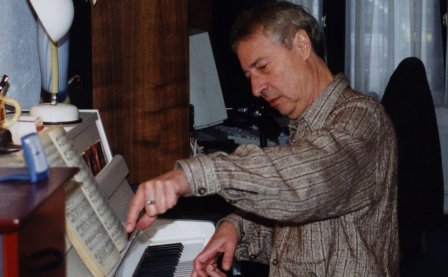As a rule, a sound can't be both visceral and ambient. But as with many rules,
Keith Fullerton Whitman's music is an exception here. Like Brian Eno's Music
for Airports and Rafael Toral's Wavefield, Whitman's laptop-abetted
adventures in tone warping are shockingly immediate; they're sounds that need
not be ruminated over to be appreciated. For a man who's lectured at Harvard,
Whitman creates very nonacademic music. His glacial, glitchy guitar pieces work
as quickly and affectingly as his filthiest Hrvatski breakbeats. Never once do
you have to pull your headphones back and ask yourself if you're really
enjoying or just making yourself enjoy Whitman's music – you just
are.
It's appropriate then that a gritty street scene – paint-chipped dumpster,
graffiti, chipped stone, drab architecture – graces the inside of Lisbon's
digipak, and even moreso that we see bills for a seemingly highbrow music
festival plastered on these dilapidated walls. Whitman situates his music in a
gut-level register, but never once calls his capital-A-Art distinction into
question.
It helps to keep this image in mind as the album begins, as it's tempting to
expect stiffness and even pretension based on its concept. For this recording,
Whitman took his celebrated Playthroughs system – a guitar-'n'-laptop
setup that deals heavily in sine waves – on the road and played solo for 40
minutes. Live, improvised, and unedited, this October 2005 Portugal tour
recording seems like exactly the sort of album destined to be branded "for
diehards only." Instead of a lengthy slog through the esoteric extensions of
Whitman's most subtle instrumental system, we actually get a mature document of
an artist in transition.
The piece's opening strains recall the Playthroughs LP. Like the songs on
that album, Lisbon's first utterances devote much of their attention to
timbre. Whitman's ear for engaging, rich tones plays a large part in his music's
accessibility, and he's on his A-game here, crafting serene washes of blossoming
drone. Each new note feels like a revelation, a new birth; where lesser "soundscaping"
so often comes across as a pale imitation of the natural world, Whitman's music
creates its own world. Each guitar stroke feels more like a ripple than a pluck,
sending calming reverberations throughout.
After establishing this oceanic, all-encompassing environment, Whitman
introduces us to its inhabitants: skittering descending and ascending tones that
sound like space ships, modulating robotic blips, and rumbling low end. By the
15-minute mark, the composition is so rife with nuance that we can no
longer parse it into individual sounds. It becomes a viscous whole.
It's as a drifting continent that Lisbon draws to a head. Volume and
loudness increase to rival any Sunn amp drone metal recording, and for possibly
the first time in his career, Whitman shreds. Over the bliss and buzz, we
hear sweaty licks that would dazzle the most jaded of guitar store clerks. It's
like hearing a Fripp and Eno or Boris and Merzbow collaboration condensed into
the work of one pair of hands. Whitman might enjoy select company along the
ambient/visceral axis, but now he alone holds the distinction of making music
that you could consider both soothing and bitchin'.
While he has his fun with this unexpected bit of traditional axemanship, Whitman
knows better than to take himself too seriously, and he forces his piece to
dramatize what an excessive display of virtuosity does unwittingly: collapse on
itself. Just when this raucous tide crests, it begins to lose its fluidity and
sound like a malfunctioning animatronic creature. The dam bursts, and when
Whitman launches back into guitar god mode to recoup, blustery sine waves
interfere and send the piece plunging into an overdriven haze that eventually
dissolves into silence. It's a great comic chain of events, one of those rare
displays of mastery of bad style in which we can practically hear the artist
laughing the entire time.
Mock humbled and forced to rebuild, Whitman indulges in a little point-and-click
abstraction before he regains his footing, and from there on out his performance
is masterful, juxtaposing heart-piercing ambience and soul-sucking subsonic
drones to leave us suspended in a lovely, ambiguous constellation of engrossing
sounds. Amen.
1. [untitled]
More about: Keith Fullerton Whitman




